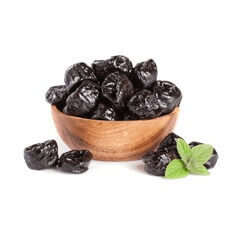The Best Quality Golden Raisins in Canada
The story of Canada’s emerging raisin industry is not only about cultivation and production but also about the evolution of culinary experiences. Raisins, known for their versatility and ability to enhance a wide range of dishes, open the door to creative possibilities for Canadian chefs, bakers, and food artisans. Whether incorporated into traditional recipes or used to add a touch of Canadian flavor to global cuisines, this golden fruit represents an opportunity for culinary exploration and innovation. As this emerging industry continues to grow and mature, it presents a compelling narrative of Canada’s agricultural dynamism and adaptability. The journey of raisins in the Canadian landscape is a testament to the nation’s ability to diversify and enrich its agricultural tapestry, unlocking golden potential and offering a glimpse into the exciting future of Canadian agriculture.
Canada’s foray into raisin production
Canada’s foray into raisin production also underscores the nation’s commitment to sustainable agriculture. As global discussions around food security, environmental conservation, and reducing food miles gain momentum, the prospect of domestically grown raisins brings with it a host of economic and ecological benefits. Raisin cultivation can thrive with fewer chemical interventions and significantly reduced transportation emissions when produced in proximity to the consumer market. In an era marked by a growing consciousness of the environment and the need to reduce the carbon footprint of food production, this emerging industry in Canada represents a step in the right direction. Moreover, the diversification into raisin production has the potential to rejuvenate rural economies, providing opportunities for growers to pivot from traditional crops or explore new avenues in the agriculture sector. With rising consumer interest in locally sourced and specialty foods, the emergence of the Canadian raisin industry aligns with shifting consumer preferences, offering a unique product that appeals to both culinary and health-conscious audiences. This shift, while gradual, can contribute to the economic vibrancy of Canadian communities, driving local entrepreneurship and innovation.

Raisins in Canada
The story of raisins in Canada is one that blends a rich agricultural heritage with innovative cultivation practices. While the heartland of Canadian agriculture lies in the vast prairies and fertile valleys, raisin production is steadily establishing itself in the southernmost regions of the country, where climatic conditions align favorably for the raisin grape. The sun-drenched vineyards of British Columbia’s Okanagan Valley, parts of Ontario, and even emerging initiatives in Quebec and Nova Scotia have offered a promising canvas for raisin grape cultivation. These efforts, though in their infancy, underscore the adaptability and resilience of Canadian agriculture, as it endeavors to embrace a fruit that has been a staple in cultures around the world for centuries. Canada, often celebrated for its vast landscapes and bountiful harvests of wheat, barley, and other grains, is now witnessing the gradual emergence of a new and promising agricultural sector – the raisin industry. Traditionally known for its association with Mediterranean and Middle Eastern regions, the cultivation and production of raisins in the Canadian landscape signify a bold diversification of the nation’s agricultural portfolio. This endeavor offers a glimpse into the dynamic evolution of Canadian agriculture, as growers, entrepreneurs, and researchers collaborate to unlock the golden potential of this delicious dried fruit, transforming it into a thriving, homegrown industry.
Raisin Cultivation & Diversification
Beyond regional diversification, the emergence of the Canadian raisin industry is deeply intertwined with sustainable agriculture and environmental responsibility. The low chemical footprint of raisin grape cultivation aligns with global conversations about the importance of sustainable food production. As consumers increasingly demand locally sourced, environmentally friendly products, Canadian-raised raisins offer a compelling option. Reduced transportation emissions and minimized chemical intervention are just a couple of the eco-friendly advantages of cultivating raisins in proximity to the consumer market. In this sense, the raisin industry becomes a symbol of Canada’s commitment to aligning agricultural practices with the principles of ecological conservation and food security. Canada’s agricultural landscape has long been dominated by staple crops like wheat, barley, and canola, but in recent years, a new agricultural frontier has been steadily taking root – the raisin industry. This development represents a dynamic shift in Canadian agriculture, as the country begins to diversify its crop portfolio to include raisin grapes, a fruit traditionally associated with Mediterranean and Middle Eastern regions. The emergence of the Canadian raisin industry is not only a testament to the adaptability of the nation’s agricultural practices but also a story of innovation, sustainability, and the pursuit of new economic opportunities. In the quest to establish a raisin industry in Canada, growers and entrepreneurs have turned to the sun-drenched vineyards of regions like British Columbia’s Okanagan Valley, parts of Ontario, and even emerging initiatives in Quebec and Nova Scotia. These areas, characterized by favorable climatic conditions, have become the testing grounds for raisin grape cultivation. As the industry matures, it exemplifies how Canadian agriculture can expand its horizons, capitalizing on regions that were not conventionally associated with raisin production. This diversification opens doors for local farmers to explore new crops and revenue streams, further strengthening rural economies and increasing agricultural resilience.
Conclusion
The Raisin Renaissance in Canada” signifies a paradigm shift in the nation’s agricultural landscape. This emerging industry’s commitment to environmentally responsible farming practices and economic revitalization within rural communities offers a compelling narrative of innovation and growth, demonstrating how the raisin renaissance is poised to redefine the future of Canadian agriculture.
Email: info@adnoor.ca







